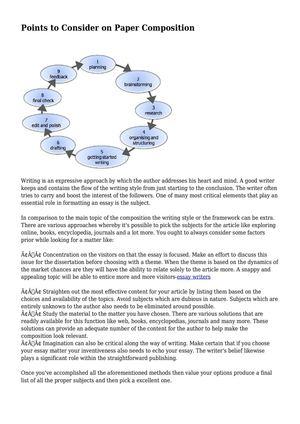Transforming France-Africa Military Relations: Senegal Ushers in a New Era
France’s recent decision to withdraw its military presence from Senegal marks a pivotal shift in its engagement strategy within West Africa. As reported by Euractiv, this move reflects a comprehensive reevaluation of France’s geopolitical priorities amid evolving security and political dynamics across the continent. By stepping back from its longstanding military role, France is effectively enabling African nations to take greater control over their defense policies and regional security architectures.
This development coincides with growing anti-French sentiment in various African countries, driven by historical tensions and contemporary geopolitical realignments. The departure prompts critical considerations about how Senegal-and the broader West African region-will address emerging security threats without direct French military involvement. It also signals potential transformations in diplomatic relations and power structures throughout the area.
Security and Sovereignty Challenges Following France’s Military Withdrawal
The withdrawal transcends mere troop redeployment; it symbolizes an opportunity for West African states to reinforce their sovereignty while tackling multifaceted threats such as terrorism, transnational crime, and political volatility. Recent studies indicate that bolstering local armed forces through enhanced training programs and improved intelligence-sharing could significantly strengthen regional stability.
However, apprehensions remain regarding possible security voids left by departing French forces. Extremist factions active across the Sahel have historically exploited lapses caused by inconsistent foreign interventions-raising concerns about potential resurgence or territorial expansion if indigenous capabilities are not adequately developed.
| Challenges | Opportunities |
|---|---|
| Risk of destabilization due to diminished external military support | Improved cooperation among ECOWAS members fostering collective defense mechanisms |
| Potential surge in extremist activities without robust counterterrorism frameworks | Development of localized intelligence networks tailored to specific regional contexts |
| Tensions impacting Franco-Senegalese diplomatic relations during transition phases | Evolving bilateral partnerships emphasizing mutual respect over dependency dynamics |
Broader Regional and Global Impact of France’s Exit from West Africa
The implications extend well beyond Senegal’s borders; this withdrawal is part of a wider trend where France is recalibrating its presence across several African nations including Mali and Burkina Faso. This strategic adjustment is influenced both by domestic pressures within France to reduce overseas commitments and shifting realities on the ground where new global actors are increasingly asserting influence.
A significant consequence is heightened competition among international powers such as China, Russia, and the United States vying for strategic partnerships through economic investments or security collaborations. According to recent figures from the African Development Bank (2024), Chinese investments in West Africa have grown at an annual rate exceeding 15% since 2020-a momentum likely accelerated by these geopolitical shifts.
- Diversification of Alliances: Countries are broadening partnerships beyond traditional Western allies toward emerging global players offering alternative development models.
- Tactical Realignments: Defense strategies are being recalibrated to reflect multipolar influences rather than reliance on former colonial powers alone.
- Sovereign Empowerment: Local governments gain increased leverage to negotiate terms aligned with national interests rather than inherited dependencies.
| Main Consequences of Withdrawal | Projected Future Outcomes |
|---|---|
| Diminished capacity for direct French military intervention locally | Potential rise in localized insurgencies necessitating indigenous solutions |
| Evolving diplomatic environment marked by intensified foreign competition | Bilateral agreements expanding economic & security cooperation with non-Western powers |
| Shift away from Europe-centric economic partnerships | An influx of diversified foreign investments supporting infrastructure development & social initiatives |
Strengthening Stability Across West Africa After French Military Departure
The drawdown of French troops calls for urgent collaborative action among regional governments, international bodies, and civil society organizations dedicated to sustaining peacebuilding efforts. Priorities should focus on reinforcing multilateral institutions like ECOWAS (Economic Community of West African States) through increased funding for joint counterterrorism operations specifically designed for Sahelian environments.
A vital element involves equipping national militaries with advanced training emphasizing both tactical expertise and adherence to human rights standards-as exemplified recently by SETAF-AF civil affairs initiatives enhancing coordination within Mauritania (DVIDS report 2025). Moreover, community-led strategies promoting civilian participation remain essential tools against radicalization.
Integrating economic empowerment into stability frameworks is equally crucial: creating sustainable job opportunities targeting youth populations can substantially diminish recruitment pools for extremist groups (UNDP report 2024). Additionally, fostering transparent governance will build public trust-a cornerstone for enduring peace.
Looking Ahead: The Future Landscape of Franco-West African Security Partnerships
The conclusion of France’s military mission in Senegal represents a watershed moment redefining post-colonial ties throughout West Africa. While this transition introduces uncertainties related to immediate stability risks-including possible insurgent escalations-it simultaneously presents an unparalleled opportunity for regional self-determination rooted in sovereign empowerment.
This unfolding chapter requires vigilant observation as new alliances emerge amid shifting geopolitical currents increasingly shaped by multipolar influences beyond Europe alone. Ultimately,a resilient future hinges on cooperative frameworks prioritizing shared responsibility between African nations themselves alongside international partners committed not merely to presence but sustainable collaboration.*”
Essential Takeaways:
- The French withdrawal highlights rising demands within Africa for autonomous control over national defense strategies;
- Addressing security gaps proactively through enhanced regional collaboration is imperative;
- Multipolar global competition introduces both challenges & opportunities influencing future alliances;
- Investments focused on governance reforms & community engagement form foundational pillars supporting lasting peace;
- The international community plays a vital role facilitating equitable partnerships grounded in mutual respect.< / li >
< / ul >< / article >

